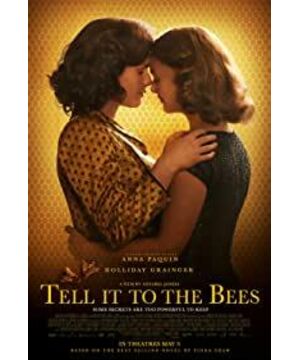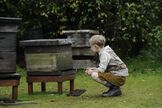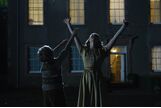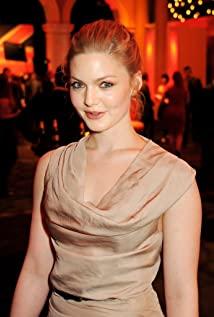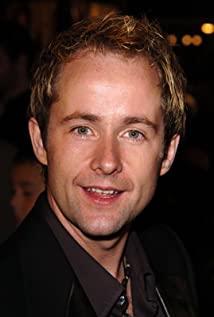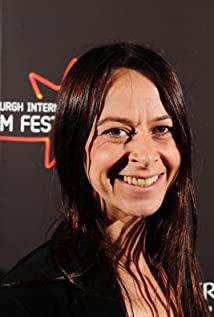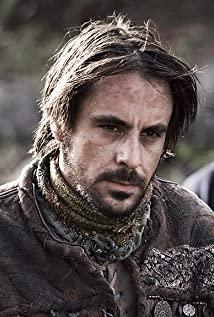The plot of "Tell the Bee", although it always revolves around the relationship between two adult women, is told through the eyes of children. The film begins with the boy Charlie looking curiously at the world of the hive, a micro-society whose vast majority are female. As the film progresses, the audience begins to explore the world with him. Surprisingly, it turns out that the "queen bee" is not the only authority that absolutely rules the bee colony. The colony can also collectively decide whether to divide the colony, raise a new queen, or even execute the queen bee that is contrary to the colony's behavior.
And Charlie's mother, a "worker bee" in human society, obviously doesn't have that much power. She worked hard in the factory, but it was difficult to bear the rent and raising her son alone. In the end, Lydia was fired from the factory because of an operational error. The husband has abandoned the family, and the father refuses to receive letters and help. Lydia, who came to an unfamiliar town because of her marriage, was suddenly isolated and helpless.
Jane, a female doctor who has just moved back to town, provides Lydia with the job of a housekeeper and solves the urgent needs of the mother and son. In fact, Jane had probably already understood their plight. At first, Charlie was bullied and injured by his classmates, and was brought to see a doctor by his cousin Annie, who has since met a doctor. The boy's clumsy lies couldn't get past Jane, who was extremely sensitive, even on the surface. Such a trait is not only because of her career and hobby of observing bees, but also because of her own secrets and experiences: she is a woman who once fell in love with the same sex.
In the first half of the twentieth century, homosexuality (and interracial relationships like Anne's) were far from popular. The intimate relationship between the two women is bound to become a scandal. And Britain is a society that hates so much, and at the same time can't stop sniffing out scandals. Young Jane and her girlfriend were attacked by thugs. His girlfriend eventually succumbed to her injuries, and Jane was sent out of town by her father. The fear of this pain, and the repeated tossing and turning in a foreign country, may be the reason for Jane's delicate and sensitive mind. But she has never been a cowardly woman, she can take care of the bees that ordinary people are afraid of alone; she still goes to follow-up after being ridiculed by the patient's family; at the lake, she also jumped into the deep water without hesitation to salvage Charlie's drifting boat. What she was afraid of was probably the reason why she became a lover and was hurt. So when you are in a relationship, the more you desire intimacy, the more passive and hesitant you are, and even deliberately maintain a distance.
The appearance of Lydia made Jane feel anew about herself who had been hidden for too long. However, while the relationship between the two is growing, the tragedy of the past seems to be brewing. The most intense conflict broke out on the night of the most disturbing moment before the swarm split. Lydia's irresponsible and violent husband breaks into the house and tries to force Lydia into submission. Meanwhile, doctors are resuscitating Annie, who was forcibly aborted by her mother. The parallel shots on both sides tell the story of the trauma suffered by the female body. The shots don't turn around on shaky scenes, but also reveal a heady attitude. Fortunately, they were all rescued in the end: by the swarm, or by another woman - as if it were a reflection of some "self".
Just this kind of rescue can't help but be full of fairy tales. Perhaps in order to avoid excessive completeness and distortion, the film rewrites the ending of the novel in which Jane and Lydia fly away together. This can be seen as a critique of escapism, but it is also an overly optimistic expectation: Jane is proud and brave to stay in her hometown, even being recognized by those who once hated her. However, it was difficult to explain her lies to Lydia, and the whereabouts of Lydia's mother and child - they ran away from the town, but can she get out of her destiny as a human worker bee? The movie ended in a hurry in the longing for the change of the times, and it seems that everything will suddenly become clear. However, you and I understand that the trajectory of history is not always going forward. In today's world, a bill that is biased on "his" side is still passed, and in a world where people "can only work quietly and cannot complain", what kind of small and grand vision will children's eyes see?
When ps was writing, I accidentally discovered that today, May 20, happens to be World Bee Day. Happy Bee Day!
pps I was shocked to see that the author of the original novel at the end of the film was Fiona Shaw. After checking it, I found out that it is the author of the same name as the actor Fiona~ (I remember that the new episode of killing eve has not been watched yet, happy watching the drama!)
ppps found a conversation between Mr. Hua (yes, Mr. Hua) and the original author: Sarah Waters Interview with Fiona Shaw
View more about Tell It to the Bees reviews


